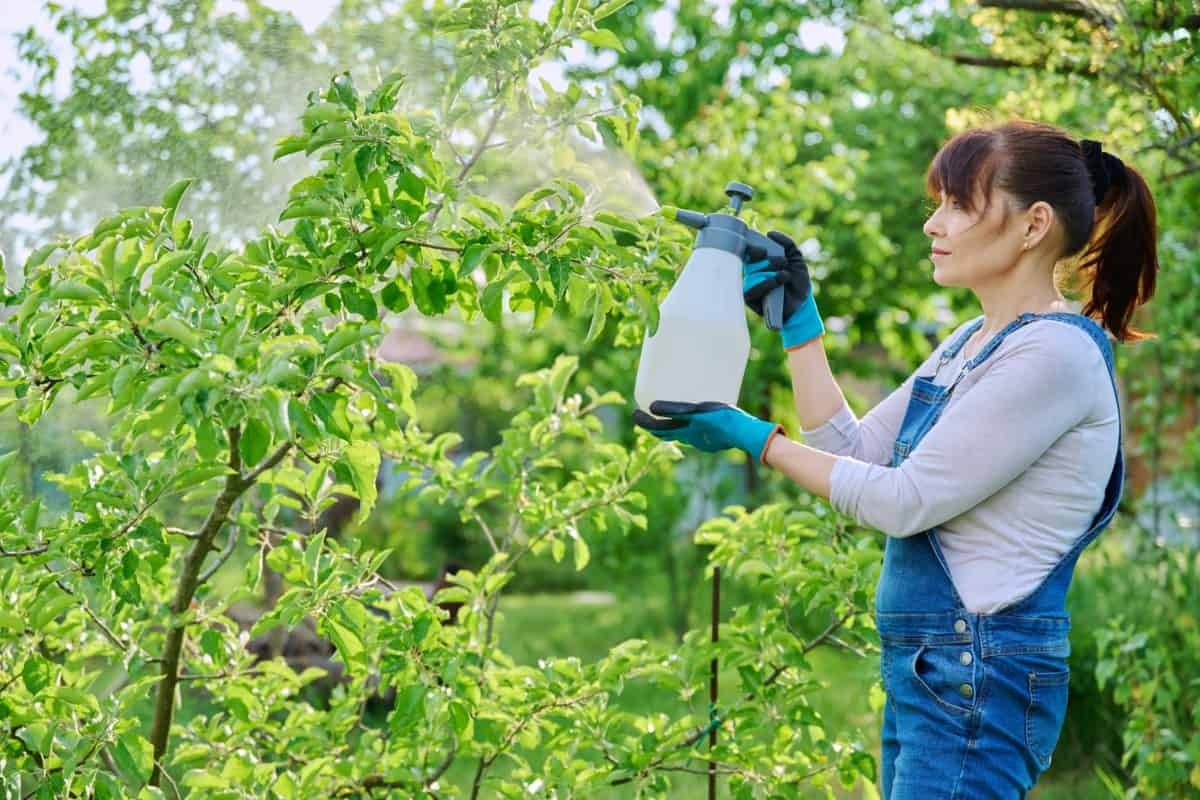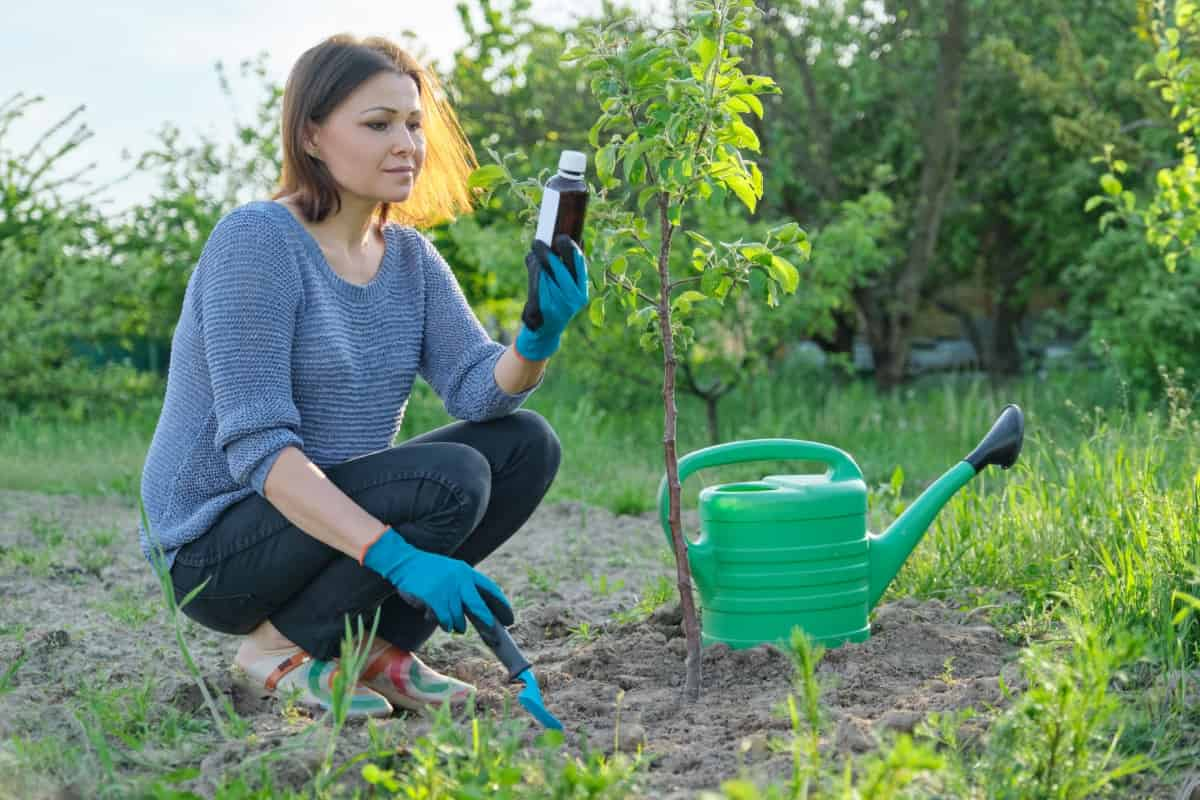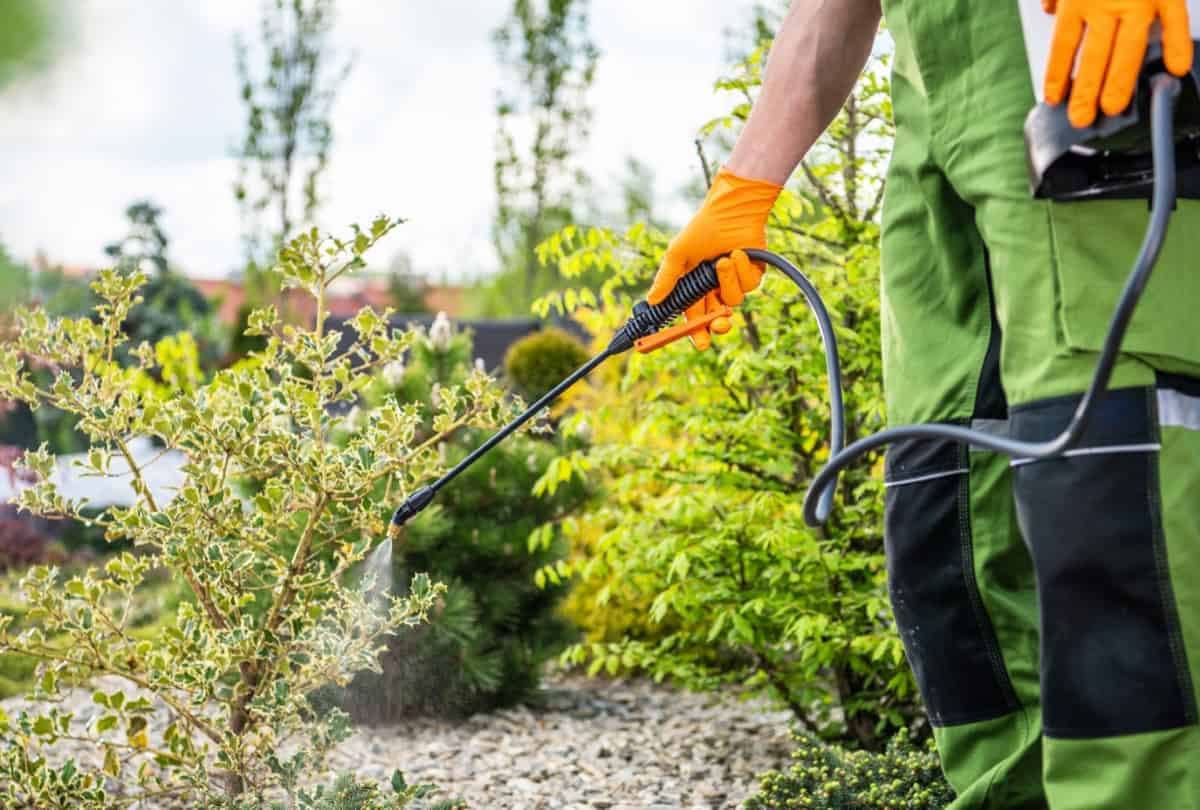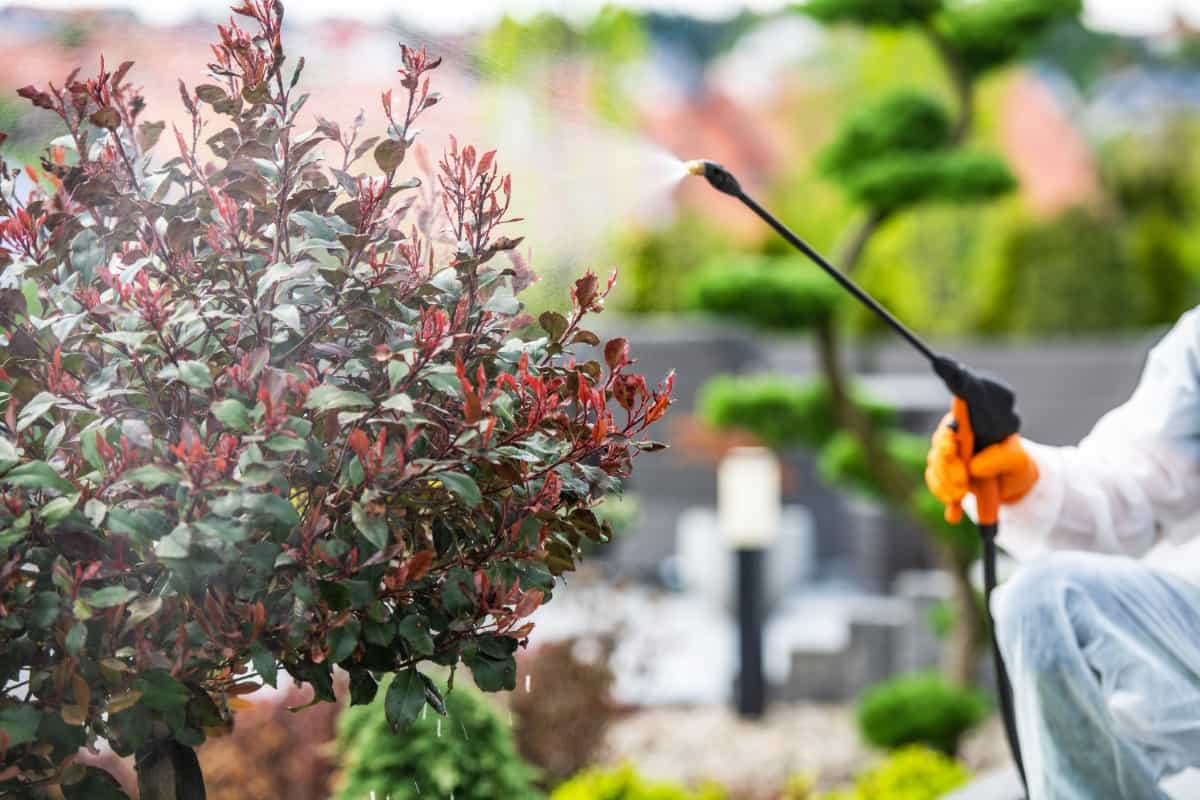Learn the benefits of using copper-based fungicides to protect your plants organically! This article focuses on their advantages while offering clear and precise information. Discover the power of these solutions as they efficiently preserve crops, stop infections, promote growth, and reduce their negative effects on the environment.

Benefits of Copper-Based Fungicide for Plants
What is a Copper-Based Fungicide?
A copper-based fungicide is a type of fungicide that contains copper as its active ingredient. It is used to control fungal diseases in plants by preventing spore germination and inhibiting fungal growth, protecting crops from various plant diseases.
Effective Plant Disease Control with Copper Fungicide
The use of copper fungicides is crucial for controlling a variety of plant diseases. They have copper compounds that function as active components to help stop and manage fungal infections. These fungicides are efficient against widespread ailments, including leaf spot, powdery mildew, and downy mildew.
They work by rupturing fungal cell membranes, preventing the development and spore generation. For instance, vineyards frequently use copper fungicides to prevent the devastating grapevine disease downy mildew. Grape producers may avoid infection in their vines and maintain productivity and quality by applying preventative copper-based sprays during the growing season.
Enhancing Plant Health Using Copper Fungicide
Plants are protected from many diseases by applying copper fungicides, a pesticide. They prevent the development of fungus, which can result in plant diseases, including powdery mildew, downy mildew, and black spot. Various plant diseases may be successfully treated using copper fungicides, which are also generally safe for plants and the environment. However, if not utilized correctly, they may be phytotoxic to plants. This implies that if they are sprayed too frequently or strongly, they have the potential to harm or kill plants.
- Plant Disease Prevention: Copper fungicides can prevent plant diseases by forming a barrier on the leaves that keeps fungus from adhering.
- Fungicides Made of Copper can be used to treat plant diseases that have already manifested. To eliminate the fungus causing the illness, they can be sprayed on the plant’s leaves.
- Supporting Plant Disease Recovery: By boosting the plant’s immune system, copper fungicides can support plant disease recovery.
Copper Fungicide: Natural Protection for Plants
Copper fungicide is a natural and efficient method of protecting plants from many diseases. It has been a staple of organic farming for many years and remains one of the most frequently used fungicides today. Copper fungicides destroy plant infections before they may spread disease by denaturing their proteins and enzymes.
In case you missed it: How to Use Fermented Buttermilk as Natural Fungicide for Your Garden Plants

Copper fungicides kill plant infections by denaturing their proteins and enzymes. The pathogen dies as a result of this interfering with its usual function. Many different diseases, including powdery mildew, downy mildew, black spot, and rust, can be successfully treated using copper fungicides.
Copper-Based Fungicides for Sustainable Plant Care
Copper-based fungicides are useful for environmentally friendly plant care since they effectively manage the disease without endangering the environment. These fungicides’ active component, copper, fights fungal diseases while being safe for the environment.
- Effective Disease Control: Fungal diseases, including blight, mildew, and leaf spots, may be controlled by disrupting fungal cell walls using copper ions.
- Reduced Residue Impact: Compared to synthetic fungicides, copper residues break down more quickly, reducing long-term environmental consequences.
- Agriculture that is More Environmentally Friendly: Copper-based fungicides are compatible with organic agricultural methods, encouraging long-term plant health.
- Long-lasting Resistance: The protective qualities of copper continue to exist on plant surfaces, offering prolonged resistance against recurrent diseases.
- Copper-based fungicides are beneficial for apple orchards dealing with apple scabs. They shield the fruit trees from the disease when used preventatively throughout the growth season, resulting in a healthier crop.
Boosting Plant Resistance with Copper Fungicide
Copper ions can help strengthen plant cell walls, making them more infection-resistant. They can also help to stimulate the production of plant defense proteins, which can help to fight off pathogens. Copper fungicides are important for managing diseases caused by bacteria and resistance developing to other fungicides being used at risk.
There are a few non-copper-based fungicides with activity for bacteria (e.g., Actigard). Most fungicides have some risk of resistance development. Chlorothalonil and manzate also have low resistance risk. Copper fungicides are also effective for fungal diseases. Copper ions kill by denaturing proteins and enzymes in cells of pathogens they contact that have not yet infected the plant. They have no post-infection activity and are non-selective, which is why phytotoxicity occurs when they get inside plants.
- Apples: Copper fungicide can help to control apple scab, a common fungal disease that can damage apples.
- Peaches: Copper fungicide can help to control peach leaf curl, a fungal disease that can damage peach leaves and fruit.
- Tomatoes: Copper fungicide can help to control early blight, a fungal disease that can damage tomato leaves and fruit.
- Roses: Copper fungicide can help to control black spots, a fungal disease that can damage rose leaves.
Copper Fungicide Benefits for Organic Gardening
Copper residues naturally break down, reducing their negative effects on the area’s environment and ecosystems. Copper fungicides are compatible with organic gardening techniques, promoting a more natural and sustainable method of crop protection. They are a flexible alternative for organic producers since they are effective against various fungi. For instance, a copper fungicide can effectively treat organic tomato plants afflicted by early blight. The diseases may be managed, and the plants can flourish naturally by spraying the fungicide on the diseased leaves.
In case you missed it: The Power of Nano Copper: 10 Benefits for Improving Agriculture and Plant Health

Preventing Fungal Infections with Copper Fungicide
Copper fungicide can be applied to plants as a foliar spray or soil drench. It is important to follow the directions on the label carefully when using copper fungicide.
- Powdery Mildew: Powdery mildew fungal disease that can affect many types of plants. It causes a white powdery coating to form on the leaves and stems of plants.
- Downy Mildew: Downy mildew is a fungal disease that can damage fruits, vegetables, and flowers. It causes the leaves and stems of plants to become yellow and wilted.
- Black Spot: The black spot is a fungal disease that affects roses and other ornamental plants. It causes black spots to form on the leaves of plants.
Advantages of Using Copper Fungicide in Agriculture
- Broad Range of Activity: Copper fungicides work well against various fungi, including rust, powdery mildew, downy mildew, and black spot.
- Environmentally Friendly and Generally Safe for Plants: Copper fungicides are environmentally friendly and generally safe for plants. They are not known to be hazardous to bees or other beneficial insects and do not carry the same dangers of resistance development as certain other fungicides.
- Low Price: Because of their low cost, copper fungicides are a reasonable alternative for farmers.
- Simple to Use: Copper fungicides are simple to apply and may be sprayed onto leaves or soaked into the ground.
Copper Fungicide: Eco-Friendly Plant Disease Management
- Copper Fungicides Naturally Decay: limiting their long-term effects on the environment.
- Targeted Fungal Control: Copper ions damage the cell walls of the fungi that cause illness, slowing its progression and improving plant health.
- Copper fungicides are permitted for organic farming, promoting sustainable agricultural methods.
- Reduced Chemical Use: Copper fungicides are a greener option than synthetic chemical treatments since they are biodegradable.
- To combat downy mildew, a vineyard might apply a copper fungicide. Applying the fungicide to the affected leaves aids in stopping the spread of the disease and safeguards the grape crop.
Long-Lasting Benefits of Copper Fungicide on Plant Growth
- Enhanced Plant Health: By shielding plants from fungi, copper fungicides can bolster plants’ health. Plants that are healthier and more tolerant of pests and other challenges may result from this.
- Increased Yields: By minimizing crop loss caused by disease, copper fungicides can increase yields. Commercial farmers may greatly profit from this.
- Quality Enhancement: Copper fungicides can enhance the quality of crops by minimizing defects and other disease-related harm. Crop prices may rise as a result of increasing consumer attractiveness.
In case you missed it: Benefits of Mineral Fertilizer Sticks: How to Use for Indoor Potted Houseplants

Conclusion
Copper-based fungicides offer natural and effective plant protection, safeguarding crops from fungal infections. With copper as the active ingredient, these fungicides target harmful pathogens, ensuring disease-free plants. The minimal residue and compatibility with organic farming make them eco-friendly for enhancing agricultural productivity.
- Feed Your Flock for Less: Top 10 Tips to Save on Chicken Feed
- Ultimate Guide to Ossabaw Island Hog: Breeding, Raising, Diet, and Care
- Hatching Answers: The Top 10 Reasons Your Chickens Aren’t Laying Eggs
- Eggs and Economics: Breaking Down the Cost of Raising Backyard Chickens
- Defend Your Greens: Proven Methods to Keep Iguanas Out of Your Garden
- Ultimate Guide to Cinnamon Queen Chicken: A Comprehensive Guide for Beginners
- Ultimate Guide to California Tan Chicken: Breeding, Raising, Diet, Egg-Production and Care
- Ultimate Guide to Marsh Daisy Chicken: Breeding, Raising, Diet, and Care
- 10 Types of Chicken Farming Businesses You Can Start for Profits